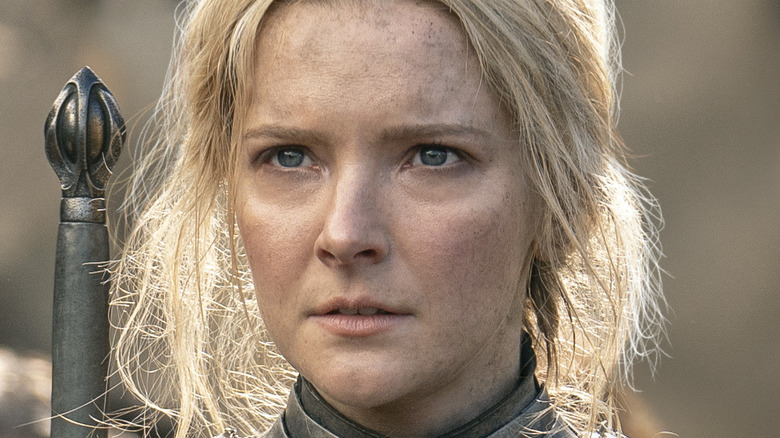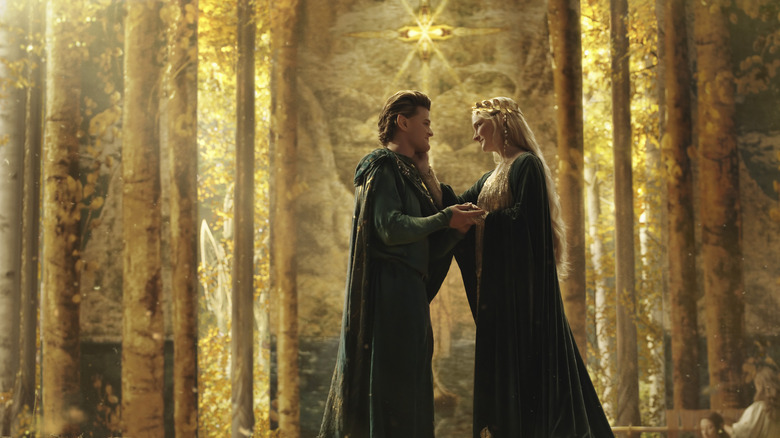Writer Gennifer Hutchison Discusses The Elvish Focus Of The First Season Of The Rings Of Power - Exclusive
This article contains spoilers for Season 1 of "The Rings of Power."
J.R.R. Tolkien's Middle-earth is a diverse and complex fantasy world filled with Dwarves and Elves, Hobbits and Men, Orcs, Dragons, Werewolves — the list goes on. Often the multi-faceted nature of Middle-earth shines, as is the case when a Wizard and Hobbit join forces with 13 Dwarves to take on a Dragon in "The Hobbit," or nine very different individuals unite to create a unique, world-altering fellowship in "The Lord of the Rings."
Yet there are also portions of Tolkien's stories that focus on one single people group at a time. The sequence in Moria in "The Fellowship of the Ring" is heavily weighted toward Dwarvish history and culture. Númenor is built around the most successful Human culture to ever grace Tolkien's works. Heck, the entirety of "The Silmarillion" is a story that focuses on the Eldar and is told from an Elvish perspective.
The tendency to focus certain storylines on particular people groups isn't just a Tolkien tendency, either. It also takes place in Middle-earth adaptations, including "The Lord of the Rings: The Rings of Power." When Looper recently sat down to talk about the first season finale of the show with Gennifer Hutchison, the writer and executive producer pointed out that it was none other than the immortal Elves who were the primary focal point of the first season.
Season 1 is about tracking the Elves
During our conversation with Gennifer Hutchison, we discussed the forging of the Three Elven Rings — an event that takes place in the final moments of the eight-episode first season. In the source material, this trio of overpowered trinkets is made after the Nine Rings for Mortal Men and the Seven for the Dwarf-lords are already complete.
Hutchison clarified that there may be a shift in sequencing since those 16 other rings will eventually come into the story. She added that the Three Rings came into the narrative sooner than the others not because of the rings themselves, but because of their owners. "This season was about tracking the Elves and their story of dealing with the fading and Galadriel's journey with Halbrand," she said. "Coming to that ending for this season was always, at least very early on, the plan because [we're] focusing on that story and making sure we're servicing that one for this season."
The order of events may be a bit off, but only because of the way the team is telling the story. Hutchison and company don't appear to be flagrantly rearranging the order of things. Instead, they're telling a story that focuses on different groups of individuals with each passing season. It already appears that Season 2 will shift that magnifying glass from the Eldar to the now-revealed Sauron, with actor Charlie Vickers adding that he hopes to see more screen time for his character not just in general, but with other people, including the Dwarves. Could we see Seven Rings for some Dwarf-kings in the not-too-distant future? It's a question that won't be answered for quite a while.
The entire first season of "The Rings of Power" is available to stream on Prime Video.

